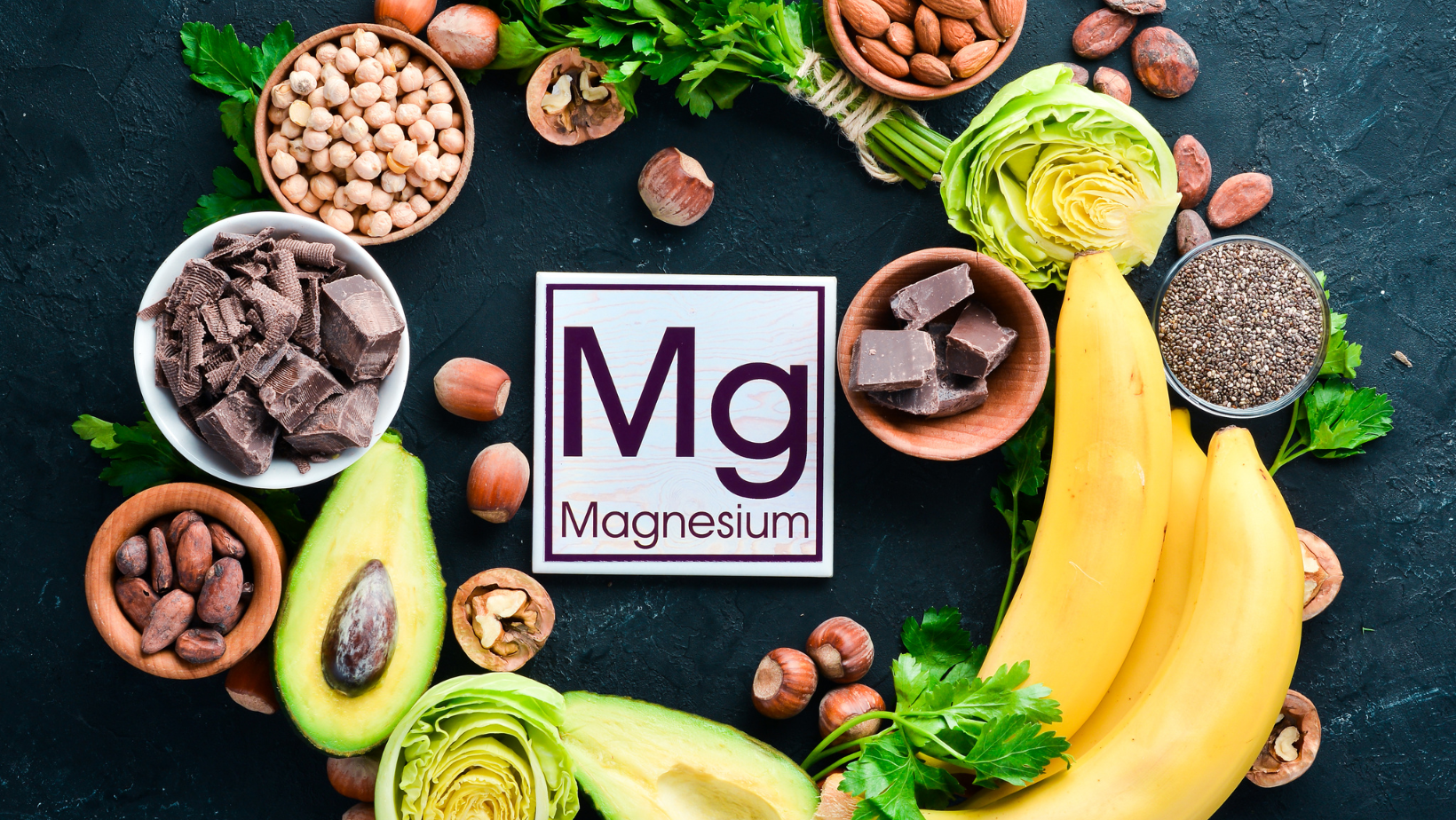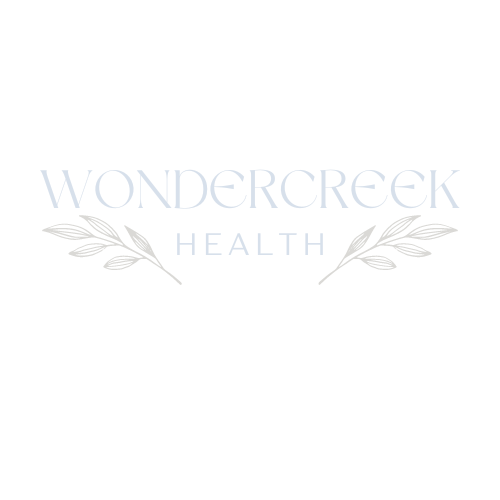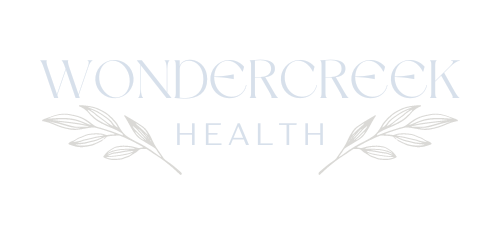Wait, Should I Be Taking Creatine?
Anna Harrelson • March 12, 2025
Why this gym supplement is gaining traction for women’s hormones, energy, mood, and healthy aging.

Creatine is one of the most well-studied, safe, and effective supplements not only for muscle performance—which is what it's most famous for—but also for brain health, metabolism, and perimenopause support. Here's a deep dive into the science behind creatine’s value, particularly relevant for women in midlife:
🔬 What is Creatine?
Creatine is a naturally occurring compound made in the liver, kidneys, and pancreas from three amino acids: arginine, glycine, and methionine. It’s stored in muscles (95%) and the brain (5%) as phosphocreatine, which serves as a rapid energy reserve for cells, especially during times of high demand.
We get creatine from animal products (red meat, fish), but vegetarians and women in general often have lower baseline levels. That's why I supplement daily!
🧠 1. Creatine & Brain Health
The brain uses a tremendous amount of energy, especially during stress, hormonal fluctuation, and cognitive tasks. Creatine helps recycle ATP (adenosine triphosphate)—our primary energy currency—so brain cells can keep firing efficiently.
Key Benefits:
- Improved mental fatigue resistance (especially during sleep deprivation or high-stress)
- Better working memory, attention, and cognitive flexibility
- Neuroprotection: May protect against oxidative stress and support mitochondrial health
- Mood support: Preliminary studies show benefits in depression, especially in women with treatment-resistant depression or PMDD
ADHD & executive function:
Enhances dopamine signaling and helps with focus and emotional regulation
🧪 One 2022 meta-analysis found that creatine improved aspects of short-term memory and reasoning in healthy adults, with women and older adults seeing the most benefit.
💪 2. Muscle Mass, Strength & Longevity
Creatine enhances muscle performance, power, and recovery, especially in aging adults and women in midlife, where we naturally lose muscle mass and strength (sarcopenia risk increases after 40).
Key Benefits:
Increased muscle protein synthesis
Improved response to resistance training
Supports healthy aging and fall prevention
Reduces exercise-induced fatigue and muscle soreness
✅ Important for healthspan: Women with better muscle strength and power have lower risk of metabolic disease, disability, and frailty in later life.
🧬 3. Hormonal & Metabolic Support in Perimenopause
Estrogen plays a role in energy metabolism and mitochondrial function—both of which decline during perimenopause. Creatine helps buffer this by:
- Supporting mitochondrial ATP production
- Improving insulin sensitivity
- Assisting in glucose uptake and lean mass preservation
- Reducing inflammatory markers in some studies
🔥 This makes it particularly helpful for women going through perimenopause, menopause, and those with insulin resistance or metabolic syndrome.
🦴 4. Bone Density
Some studies show creatine, especially when combined with resistance training, may support bone mineral density—critical for women at increased osteoporosis risk.
🩺 5. Safety & Dosing
Creatine is extremely well-studied and safe in recommended doses:
- 3–5 grams per day (no need to load for most people)
- No evidence of kidney damage in healthy individuals
- Safe for long-term use
- Works better when taken consistently (daily), and absorption is enhanced with carbs or protein
Note: Can cause minor water retention in muscles initially, but not dangerous.
🌟 Summary: Who Should Consider Creatine?
✅ Perimenopausal & menopausal women (100% ME!!!)
✅ Women with fatigue, low mood, or brain fog (occasionally, me)
✅ Vegetarians / low red meat eaters (me)
✅ People with ADHD or depression (that's me)
✅ Anyone strength training or focused on aging well (and also, that's me!!!)
WonderCreek Health Blog

Many of the women who find their way to me share a common story: They’ve seen multiple specialists. Their labs are “normal.” Their symptoms are scattered across systems—joints, gut, mood, hormones, skin—and yet every provider focuses on one piece at a time, never the whole picture. They’ve often been told they’re anxious, dramatic, or “too sensitive.” And yet, they’re also some of the most intuitive, self-aware, and relentlessly curious patients I’ve ever met. They know their bodies. They know something isn’t right. And they won’t stop searching until someone finally sits down and helps them connect the dots. That’s where connective tissue disorders come in. What Do We Mean by “Connective Tissue Disorders”? When I talk about this group of conditions, I’m referring to women who often fall somewhere on the spectrum of: Hypermobility spectrum disorder (HSD) Ehlers-Danlos features Mast cell activation (MCAS) Endometriosis PMDD and other hormone sensitivities POTS or other dysautonomias The common thread? Their connective tissue is different—looser, more fragile, more reactive. And when the scaffolding of the body isn’t as stable, symptoms spill over into every system: joints, vessels, immune response, mood, hormones, digestion, even the brain. Why Midlife Feels Like a Breaking Point Estrogen has always been a stabilizer. It strengthens collagen, calms mast cells, and helps buffer the nervous system. So, it’s no surprise that perimenopause—when estrogen begins to fluctuate dramatically—can feel like the rug is being pulled out. I see women who: Once held things together with sheer willpower Managed PMDD, migraines, or endometriosis in their younger years Suddenly feel like everything has intensified: joint pain, bloating, histamine reactions, mood shifts, insomnia, brain fog For women with sensitive connective tissue and sensitive nervous systems, hormonal shifts don’t just cause hot flashes—they destabilize the entire body. Hormone Therapy for the Orchid Patient Many of my patients have tried hormones before. Sometimes birth control left them moody, swollen, or miserable. Sometimes a patch or pill was prescribed quickly, with no attention to how sensitive their system might be. So when they hear “hormone therapy,” they’re understandably hesitant. This is where my orchid theory comes in. Orchids are not weak flowers—they’re strong, beautiful, and resilient. But they need careful tending. They don’t thrive when thrown into the same soil or light as every other plant. They require patience, precision, and a slower hand. My connective tissue–sensitive patients are orchids. Their bodies respond to hormone therapy, but they need a methodical, gentle approach: Always bioidentical hormones Introduced slowly, step by step Carefully monitored, with adjustments made gradually Combined with lifestyle strategies to support the nervous system and reduce inflammation This is not a “one patch fits all” process. It’s a partnership. And when done thoughtfully, hormone therapy can bring profound relief and stability. Why Sensitivity Is a Strength The women I see are often neurodivergent—ADHD, autistic traits, or simply highly perceptive. They’re often told their sensitivity is a liability, but I see it differently. That very sensitivity is what helps them notice patterns others miss. It’s what fuels their curiosity to keep searching, even after being dismissed. Their intuition about their own bodies is spot on. Yes, their connective tissue is different. Yes, their mast cells fire more easily. Yes, their hormones seem to create more chaos. But these women are also some of the most resilient, resourceful, and insightful people I know. Moving Forward If you see yourself in this description, please know: You’re not “too sensitive.” You don’t have 27 different diagnoses—you have a pattern that makes sense. Hormones are not off the table for you—they may just need to be approached differently. Your lived experience matters as much as your lab results. This isn’t about fixing you—you are not broken. It’s about giving your body the tailored support it’s been asking for all along. This is just the beginning of a series I’ll be writing on connective tissue–related conditions: MCAS, PMDD, endometriosis, and more. Each deserves its own spotlight. But the first step is recognition. You deserve to be seen in your wholeness—not dismissed as “normal” when everything in your body is telling you otherwise.

You know how people say, "Just drink some water and take a magnesium supplement" like it’s the answer to everything? Well… they’re not totally wrong. But like most good advice, the devil is in the details. Magnesium is one of the most essential minerals in the body, involved in over 300 enzymatic reactions , yet it remains one of the most commonly overlooked deficiencies in midlife women. And no, your annual bloodwork probably didn’t catch it. So What Does Magnesium Actually Do? Think of magnesium as a multitasking background assistant—it keeps the lights on and the gears turning across nearly every body system: Brain & Mood: Regulates GABA and NMDA receptors, supporting calm, focus, and resilience against anxiety and overstimulation. Muscles: Prevents cramping and twitching, supports strength and recovery, and reduces restless legs. Sleep: Plays a role in melatonin production and nervous system regulation. Bowel Function: Helps pull water into the colon to prevent constipation. Cardiovascular Health: Regulates blood pressure and helps with vasodilation. Hormone Balance: Assists in estrogen metabolism and combats insulin resistance. In short: if you’re exhausted, bloated, moody, foggy, tense, or irregular in your gut or cycle—magnesium deserves a spot on your radar. Why Is Magnesium So Important in Midlife? Estrogen and progesterone both influence magnesium levels. As hormone levels decline or fluctuate during perimenopause and menopause, so does your ability to retain and utilize magnesium. Add to that: Chronic stress (which depletes magnesium) Modern diets (often low in magnesium-rich whole foods) Medications like PPIs, diuretics, or certain antibiotics High caffeine, sugar, or alcohol intake (all increase magnesium excretion) And suddenly, a " borderline magnesium issue " becomes a perfect storm. Why Your Blood Test Might Not Show It Serum magnesium tests only reflect ~1% of total body magnesium. Most magnesium is stored in bone and tissue. So it’s very possible to have "normal labs" and still be clinically deficient. In practice, we go by symptoms, risk factors, and therapeutic response. Common Signs of Suboptimal Magnesium Trouble falling or staying asleep Anxiety or nervous system overactivation Fatigue or burnout that doesn’t resolve with rest Muscle cramps, spasms, or eye twitches Constipation Menstrual migraines or tension headaches Joint stiffness or tightness Sugar cravings or blood sugar crashes Best Food Sources of Magnesium Magnesium-rich foods include: Dark leafy greens (spinach, chard) Nuts and seeds (especially pumpkin seeds and almonds) Avocados Legumes Dark chocolate (yes, really!) Whole grains like quinoa and oats That said, many of us still fall short even with a healthy diet, especially during high-stress seasons or if absorption is impaired. Supplements: Which Type of Magnesium Is Best? Not all magnesium is created equal. Here are the forms we most often recommend: Magnesium Glycinate: Best for sleep, anxiety, and muscle relaxation. Gentle on the stomach.** Magnesium Citrate: Useful for constipation, but can cause loose stools at higher doses. Magnesium Threonate: May support cognitive function and brain health. Magnesium Malate: Good for energy and muscle pain, often used in fibromyalgia. We generally avoid magnesium oxide unless constipation is the only concern, as it’s poorly absorbed. **Mag Glycinate is generally my go to recommendation and what we take at our house Also, BLENDS can be good- but generally more expensive Dosing & Timing Most women benefit from 200–400 mg daily, depending on needs. Take it in the evening if you're targeting sleep or relaxation. Divide doses if taking more than 300 mg (e.g. AM + PM). Always start low and go slow, especially with citrate forms to avoid urgent bathroom visits. Final Thoughts If magnesium had better marketing, it would be a top-tier wellness darling. But because it’s quiet, essential, and boring on paper, we tend to overlook it. Yet for so many midlife women, magnesium is the missing link that helps all the other systems and strategies finally click. So if you're doing "everything right" and still feel off? It might be time to start taking magnesium!

